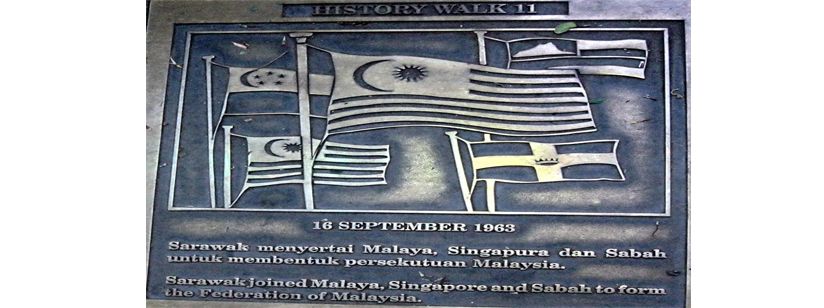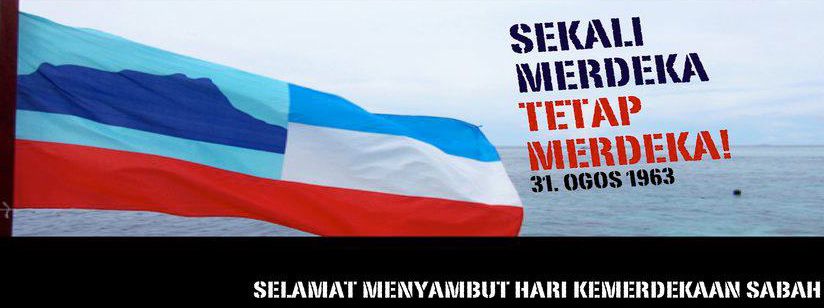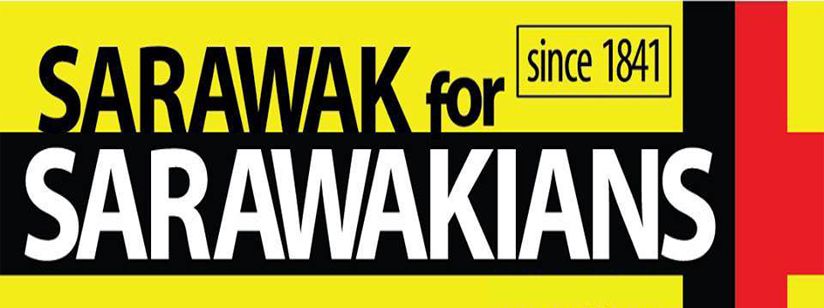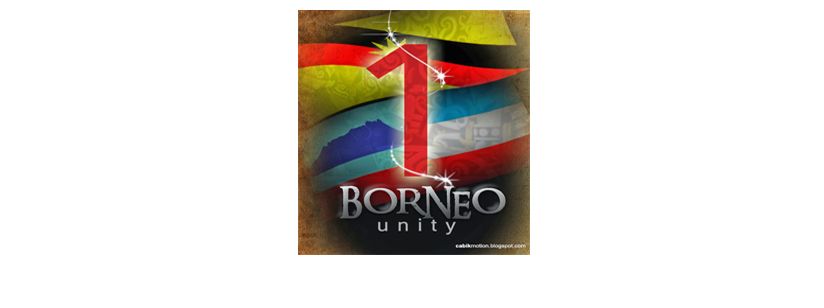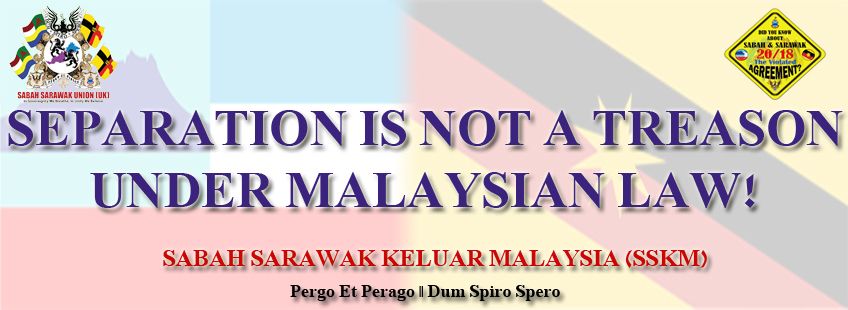- “There was no fear of being arrested without a fair trial. There was no repressive and draconian laws. The people had confidence in the police and they did not intimidate and harass people.
- “They were highly respected for their professionalism. No community claimed superiority over others. There was no such thing as ‘ketuanan Melayu.’
- “There was no racial, ethnic and religious problem. Inter-marriages were common. Many Sabahans are products of mixed parentage. There are no less than 40 ethnic communities in Sabah.
- “The word ‘Allah’ was never an issue. The non-Muslims used the word in their prayers and the Muslims never complained. They did not get confused.
- “No members of any racial, ethnic or religious community tried to impose dress codes for others. There was no forced conversion. There was true freedom of religion. There was no quarrelling and dispute over dead bodies.
- “The Bibles were not confiscated by any government or religious authority. There was no case of a bride being snatched away by religious authorities on her wedding day.
- “The civil service was multi-racial reflective of the ethnic and racial make-up of the North Bornean community. Civil servants were highly regarded and respected for their professionalism and devotion to their duties and responsibilities.
- “Meritocracy was observed and practised. There was no illegal immigrants as we see them today. Native laws, customs and rights were respected. Natives were not displaced from their traditional territories.
- “People were not labelled as Muslims simply by having a Bin or Binti in their names or by having Arab sounding names. No individual or community felt deprived or marginalised because of race and religion.
- “North Borneo received more scholarship awards than it needed from very sympathetic rich Commonwealth countries.
- “Corruption and cronyism were unheard of. There was no anti-corruption agency. It was not needed. There was no kidnapping for ransom.”
Monday, 14 September 2015
Simon Sipaun: “I do not see much hope for the future if the present government continues to rule”
Simon Sipaun was one of the first commissioners of the Human Rights Commission of Malaysia (Suhakam) and served as a State Secretary for 5 years
Sipaun asserted that the current government is “human rights unfriendly”
He said that life in Malaysia is a lot worse than before North Borneo joined Malaysia
Simon Sipaun, a defender of human rights in Malaysia, has very strong views about the state of the nation, 52 years after the Federation was formed on September 16, 1963 as per interview with Joe Leong in theantdaily.
“Malaysia is overdosed with politics based on race and religion. Good and effective leadership is lacking. The rule of law is not observed. Corruption has become a culture starting at the very top. Good governance is not complied with.”
Simon retired in 1993 after serving for five years as State Secretary, the head of the civil service in Sabah.
He went straight to the point, without mincing words. According to him, the government is “human rights unfriendly”.
He explains, “It appears that people who are perceived to know the truth are in danger. Speaking in public is akin to walking in a field full of mines. The government priority appears to be remaining in power at whatever cost.”
When the Human Rights Commission of Malaysia (Suhakam) was formed in 2000, Simon was one of the first commissioners to be appointed.
He served Suhakam for 10 years, six of which as its vice-chairman.
Actually, on September 16, 1963, Simon was still studying in New Zealand.
“Personally, it was a sad day for me because on that day North Borneo, as Sabah was then known, lost the only opportunity to experience what it was like to be a truly independent and sovereign nation, able to determine its own destiny with its own seat in the UN.”
Instead, Sabah was independent from August 31, 1963 to September 15, 1963, just 15 days, he says.
He was back in North Borneo in January 1962 for a holiday, and observed that the leaders were carried away with the word ‘Merdeka’.
He had the impression that they did not have any idea what the word entailed and that they were influenced by Malayan leaders.
“The ordinary people did not understand what exactly was happening. There was no political party in North Borneo until 1961 and 1962, and the literacy standard was very low. I could sense the possibility of colonial power being transferred from Britain to Malaya.”
Recalling those crucial couple of pre-Malaysia years five decades back in history, he made this observation:
“Malaya gained its independence from the British on August 31, 1957. It had existed as an independent and sovereign nation for six years already. I felt that North Borneo was like a child given away for adoption by the British to the Malayans.”
Simon’s impression is that Tunku Abdul Rahman had a different attitude towards leaders of North Borneo as compared to Singapore leaders, in particular Lee Kuan Yew.
He felt that Tunku appeared ready to assimilate the Borneo territories but “had some aversion towards Lee”.
In his opinion, Lee was in a different weight category compared to the lightweights of North Borneo and Lee stood his ground with dignity.
Simon also took note of the fact that Lee remained the Prime Minister of Singapore while it was part of Malaysia.
“To Sabahans, Malaysia came at least 10 years too early. Singapore was expelled on 9th August 1965. Look at where Singapore is now!”
According to him, Singapore has even “outperformed” Britain, its former colonial master, as well as Malaysia by a long way.
He sees that Brunei appears to have no regrets today for having opted out from becoming part of Malaysia at the 11th hour.
On the difference between Brunei and Sabah as they stand today, Simon has this to say, “It remains a big fish in a small pond. Brunei has oil and gas, so has Sabah. Brunei citizens do not pay income tax! Sabah has turned out to be a small and undernourished fish in a big pond.”
He remembers life in North Borneo was pleasant, safe and peaceful.
“Admittedly, there was no development as we see it today. However North Borneo was not alone. Malaya and Singapore at that time were not that developed either.”
Simon was one Sabahan who cherished the hope for life in Malaysia to be a lot better than it was in British North Borneo.
If not better, then at least not worse.
“Otherwise why be part of Malaysia?” he asked.
When asked whether it is better now by comparison, Simon was quick in his reply, “Sadly I find life in Malaysia a lot worse.”
He gives a long list of grounds for coming to this conclusion. Here they go:
He also spoke at length over the confusion over the dates of independence for different parts of the nation.
He sees an urgent need to recognise and acknowledge the real facts of history “if we are serious in creating and maintaining genuine national unity and integration.”
It is a historical fact that Malaysia was formed on September 16, 1963, yet the federal government only acknowledged and accepted September 16 as ‘Malaysia Day’ in 2009, 46 years later.
“This speaks volumes. 16th September should be the only date to be celebrated by Malaysia,” Simon stressed.
Surely, he has some hope as Malaysia is about to move into her 53rd year as a federation?
Finally, Simon says his hopes depend on the young generation who can rise above race and religion, especially the Malays who comprise the majority race.
Source: Bobohizan Press
Malaysian, Philippine governments ‘conspired’ in Lahad Datu armed intrusion, High Court told
KOTA KINABALU, 8th September 2015 - The High Court here today heard that the Malaysian and Philippine governments had ‘conspired’ on a matter relating to the armed intrusion in Lahad Datu.
A communication interception processing staff, who was testifying as a ‘protected witness’, said in an intercepted telephone conversation that a suspect, Basil B. Samiul was warned by a man dubbed, ‘Lelaki Sabah’ (Sabah man) — as his identity was not revealed in the conversation — to be on alert and that “we are being used”.
“I don’t know who ‘we’ and what ‘the governments of Malaysia and the Philippines conspired’ meant by ‘Lelaki Sabah’,” said the witness through a court interpreter.
The conversation in the Bajau language, in which Basil contacted the individual was intercepted by the police on February 25, 2013 at 10.28am.
The witness was testifying in the trial of 30 individuals linked to the intrusion by Sulu gunmen at Kampung Tanduo, Lahad Datu in February 2013. The witness also said the ‘Lelaki Sabah’ then passed the line to an individual known as Han who told Basil that some media practitioners had interviewed a sultan, requesting him (sultan) not to believe the government of the Philippines.
While unable to identify who the media practitioners were, the witness also said Han informed the suspect that the said media had told the sultan to stand firm on his right on the Sabah claim.
“Han had also asked why Malaysia, being a Muslim country, did not return Sabah to the sultan,” said the witness.
Earlier, the witness said Basil received a call from another individual, also dubbed by the police as ‘Lelaki Sabah’, who told the suspect that he (Lelaki Sabah) heard news on television that the Malaysian Army had taken over Kampung Tanduo.
In the telephone conversation in Bahasa Malaysia intercepted on February 24, 2013 at 3.44pm, the witness said Basil told the individual that Malaysian news would only air statements that were favourable to the Malaysian Government. In the dock are 27 Filipinos and three local residents who are facing one to multiple charges of being members of a terrorist group and waging war against the Yang di-Pertuan Agong.
They are also alleged to have recruited members for a terrorist group or wilfully harboured individuals they knew to be members of a terrorist group.
The offences were allegedly committed between February 12 and April 10, 2013.
Source: Wiki Sabah
